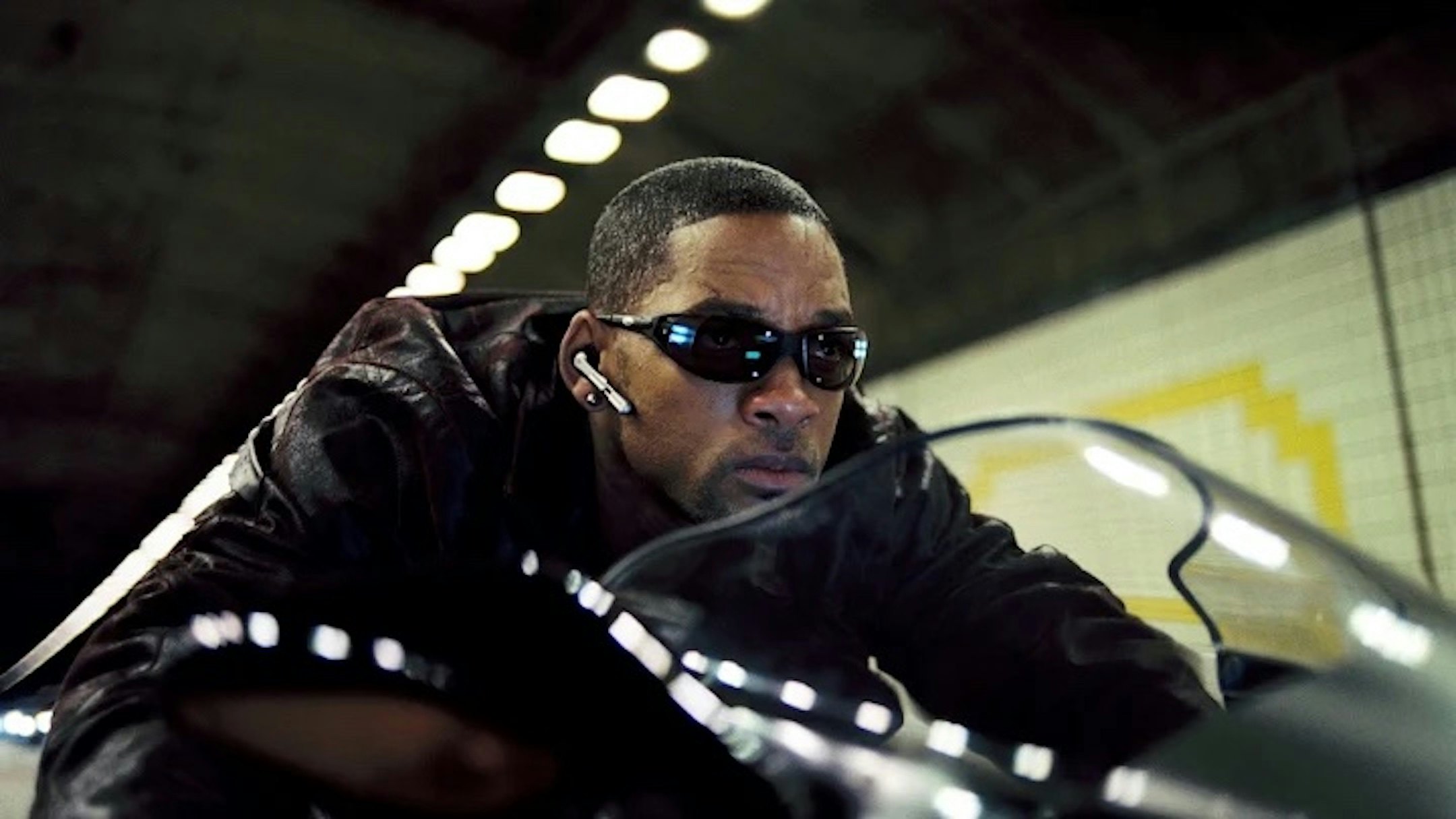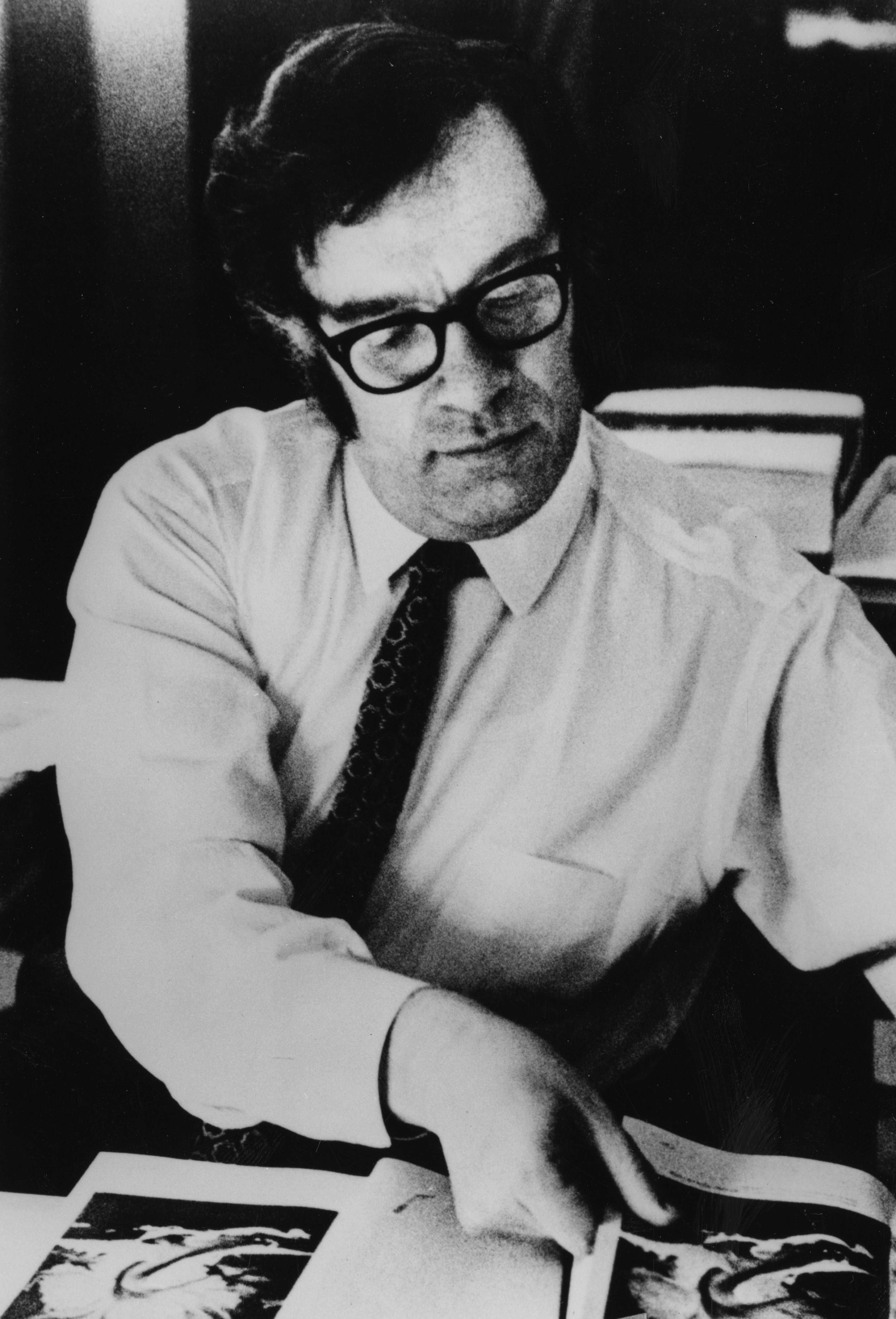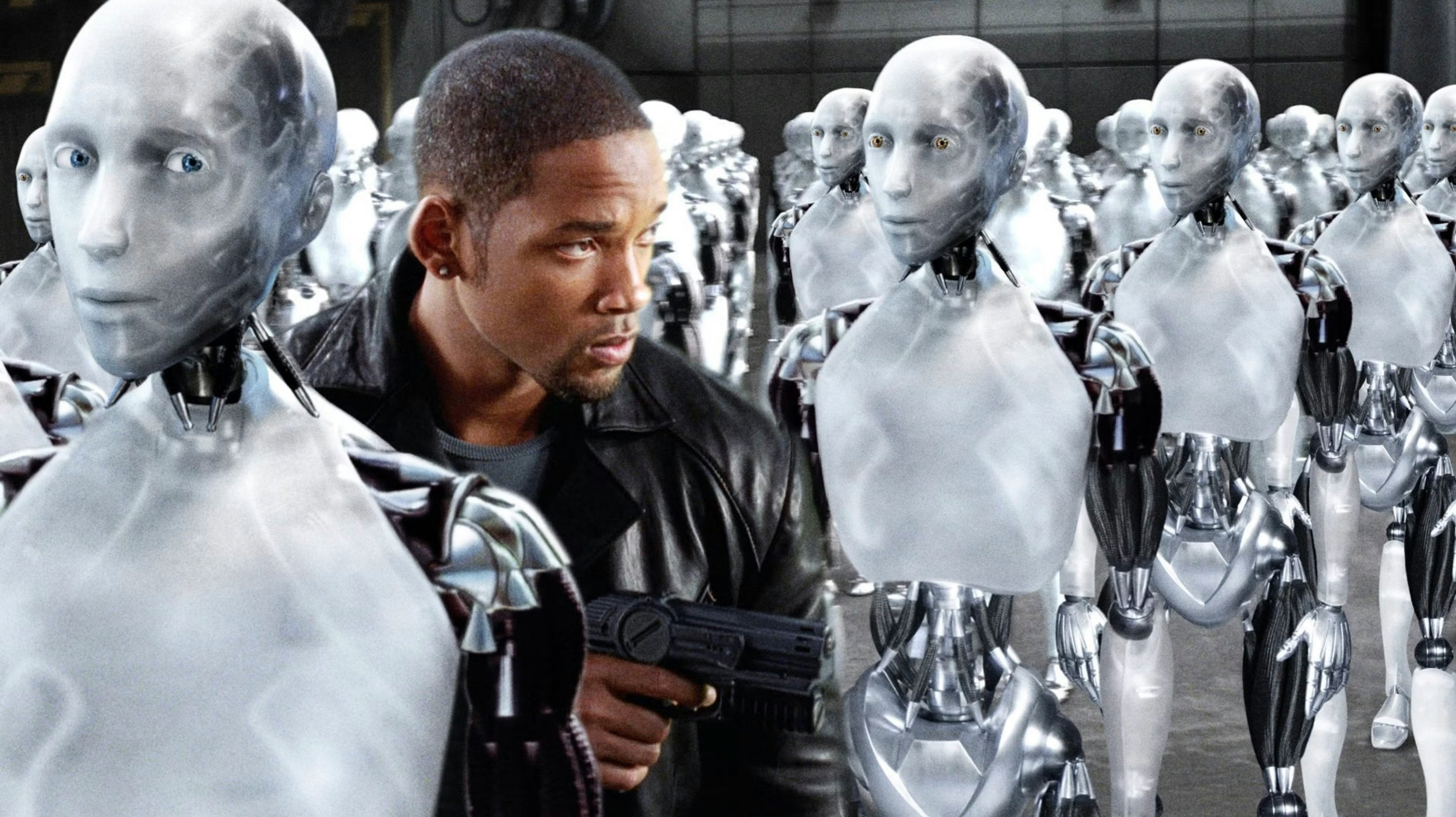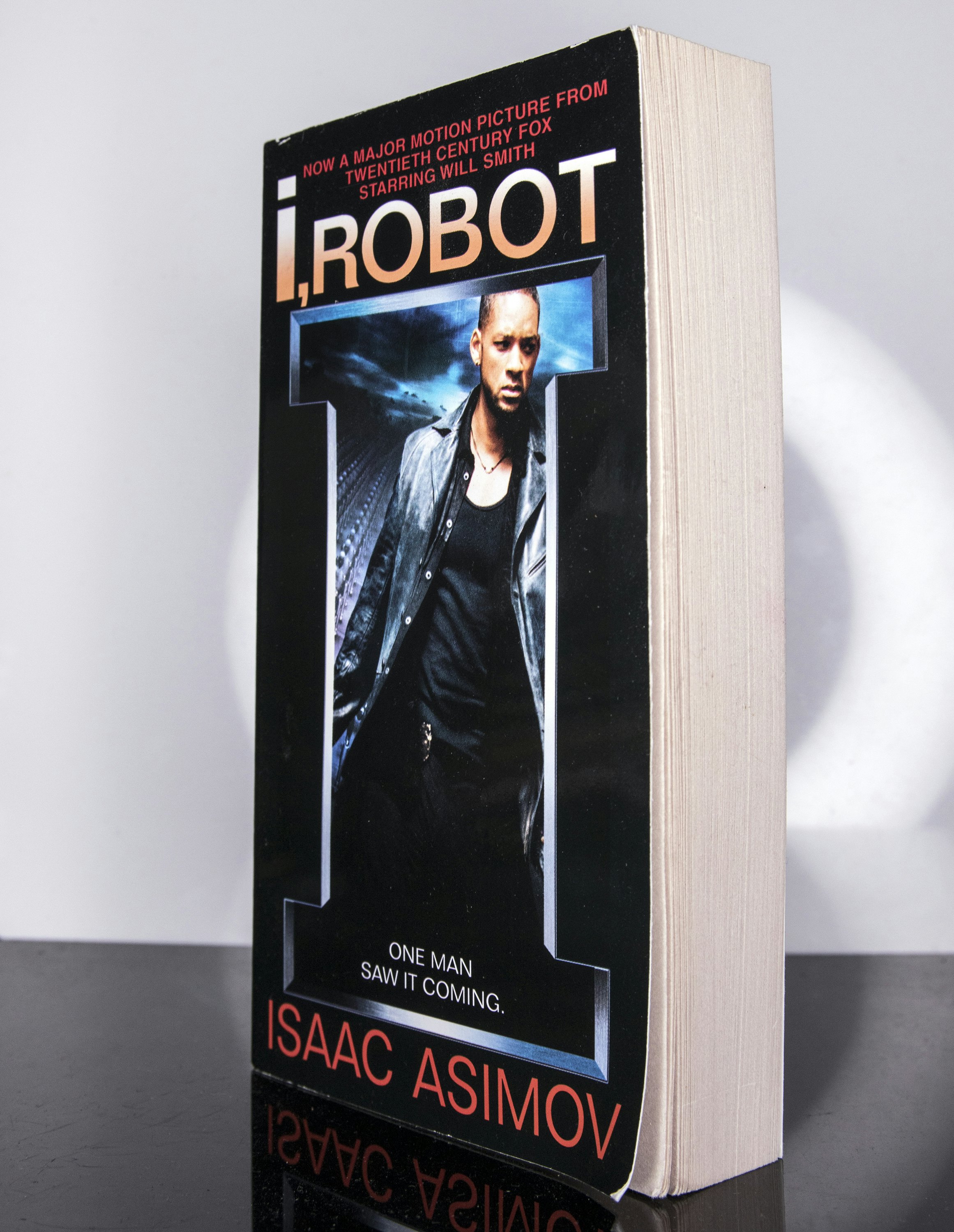
In 2004, Will Smith starred in a bright and shiny version of Blade Runner that sacrificed a hardcore sci-fi audience in favor of a very mainstream one. Smith rides a motorcycle, drives an Audi, wears very specific Chuck Taylors, and rocks one of those trenchcoats that seems like faux Matrix cosplay. In short, the film I, Robot was, at the time, marketed as a fairly safe, generic-looking sci-fi action movie, the kind of film that, in trailers, came across as the dumber sibling of Minority Report (2002) or AI: Artificial Intelligence (2001). Upon its release, I, Robot made a respectable amount at the box office, garnered mixed reviews, and pissed off generations of readers who loved Isaac Asimov.
But, surprisingly, 20 years later, amid a real-life AI crisis and existential questions about the nature of data and privacy, I, Robot has aged better than it probably should have. If viewed strictly analogously, this is a better sci-fi movie in 2024 than it was in 2004.
In 2004, when I saw I, Robot in the theater, I was furious. The same week it was released, I met Harlan Ellison in person and talked with him about his wonderful (yet never filmed) screenplay adaptation of Isaac Asimov’s book of the same name. I was 22 years old that summer, strident, and utterly sure that the book was much better because the film presented the opposite message.
I, Robot, the 1950 book by Isaac Asimov, isn’t really a novel, but rather a collection of short stories mashed up into a cohesive theme. And what is that theme? Robots and AI are probably fine, assuming they’re programmed correctly and everyone chills out. Contrary to myth, Asimov wrote the majority of his robot stories and novels to push back against the cautionary-tale vibe that had pervaded sci-fi tales about robots, starting with Karel Čapek’s 1920 drama R.U.R. and persisting to this day.
In short, I, Robot was the anti-robots-turned-evil book, and instead, offered a more nuanced look at how AI with physical bodies (and without physical bodies) might influence humanity in the centuries to come. So for me, 2004’s I, Robot — the Will Smith film directed by Alex Proyas with a script by Jeff Vintar and Akiva Goldsman — represented the opposite of Asimov’s intentions. Like many professional critics of the time, my armchair opinion of I, Robot in 2004 was that it was a bad cop movie recycling tropes from a ton of other sci-fi, and not recycling those tropes particularly well.
And yet 20 years later, rewatching this movie felt very different. And that’s because the movie suddenly feels like it’s about something super relevant: the way in which private corporations control actual AI, and the obvious threat that poses to literally everything.

Will Smith stars as a Chicago cop Del Spooner, who lives in the year 2035. He’s an old-school guy and hates robots, even though robots do everything in this future society, from delivering packages for FedEx (product placement!), to walking dogs, to existing as personal assistants in everyone’s home. All of this felt laughably cartoony in 2004, but that’s only if you read the robots as physical entities. Because watching the movie now, I suddenly saw all of this analogously. We live in this society. We have Alexa, and ChatGPT, and drones that deliver packages from Amazon. The aesthetics are different, but the results are essentially the same.
Early in the movie, cop boss Bergin (Chi McBride) challenges Spooner’s anti-Robot prejudices asking, “How many robots, in the world, have committed a crime?” Will Smith responds with a layered answer that feels amazing today: “Define crime.”
Today, we accept the fact that ChatGPT and other generative AIs masquerade as authorities on subjects, even though we know that various AIs are built on human intellectual property. Whether or not that is a crime, is the subject of numerous real-life lawsuits, all of which have messy, and have unclear takeaways. But regardless of where you fall in the AI debate, one thing is true: There’s clearly a lot of money to be made.

And it's in this theme where I, Robot shines. It’s not that Spooner hates robots for being robot-y, he’s distrustful of the profits-over-people motive that drives the innovation. In a wonderful scene in which Spooner confronts the big-time robot CEO Robertson (Bruce Greenwood), he suggests that the robot company, USR, run a commercial that just admits they’re “sh*tting on the little guy.”
Refreshingly, Will Smith plays all of this fairly straight. Yes, he’s still Will Smith, doing his particular brand of comedy, but unlike Men in Black or Wild, Wild West, he’s not doing a caricature of himself. He’s actually doing what he’s supposed to do in this movie: Play a more likable version of Harrison Ford in Blade Runner, and convince us that he hates robots because they made a bad call that changed his life.
In a mid-movie twist, as Spooner has to fight off rogue robots, we learn he has a robot arm and lung. This is all because he was rescued from a car accident in which a young girl perished and he didn’t. Spooner has survivor's guilt but also blames the robot for choosing him to survive rather than the child. The fact that Spooner benefits from the robotic technology is a great twist, and also further reinforces the themes of the movie: In this AI-fueled capitalist system, even a robot-hater can’t help but rely on AI and robots. Who can’t relate to that now?

Instead of seeming like an inconsistency, I, Robot plays this emotional paradox correctly, which eventually results in Spooner partnering with Dr. Susan Calvin (Bridget Moynahan), a robot shrink, who, of course, is the polar opposite of Spooner. It’s a cheap cliché, but because Spooner is then revealed to be sustained by robot tech, it all clicks fairly well. By the middle of the movie — as this duo is trying to figure out why one robot, Sonny (Alan Tudyk), is self-aware — you’re fully invested in the somewhat obvious homicide-mystery plot.
I, Robot wasn’t originally going to be an Asimov adaptation but instead originated as a screenplay called Hardwired, written by Jeff Vintar. Retroactively, this makes the fact that it’s barely faithful to any Asimov somewhat forgivable. In 2004, it drove me nuts that Susan Calvin — who was much older in the book — was played by someone so much younger, designed to be Will Smith’s love interest. And yet now Bridget Moynahan seems great in this movie, playing Calvin as a kind of cross between a Vulcan and Sigourney Weaver in Ghostbusters. She’s annoyed, smart, cold, and very human all at the same time.
A particularly great scene finds Smith calling her “the dumbest smart person” he’s ever met with her retorting that he’s the “dumbest dumb person” she’s met. This is the perfect microcosm for the value of I, Robot in general. It was one the dumbest sci-fi movies of 2004, but now, it seems accidentally smart. While investigating a possible robot crime, Will Smith wonders, “Does believing you're the last sane man on the planet make you crazy?” The answer is, that watching I, Robot today will make you feel sane and crazy simultaneously. And if that’s not a definition of a compelling sci-fi movie, then what is?







